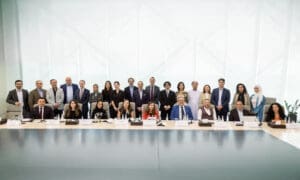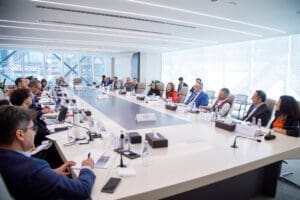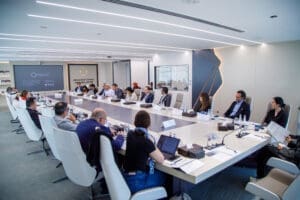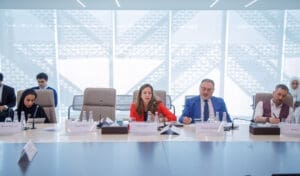Iran’s Nuclear Program:
Strategic Setbacks, Domestic Pressures, and Future Trajectories
September 3, 2025
Summary
Israel and the United States’ military strikes on Iran’s nuclear facilities in June 2025 has raised urgent questions about the role of diplomacy in managing regional tensions, Tehran’s nuclear ambitions, and the shifting dynamics of regional alliances. Within Iran, calls for establishing nuclear deterrence continue to grow in the wake of Israel’s devastating unilateral attacks. Tehran has already begun significantly reducing its cooperation with the International Atomic Energy Agency (IAEA). It is threatening withdrawal from the Nuclear Non-Proliferation Treaty (NPT) (if the snapback mechanism is triggered), a move that would raise new nonproliferation concerns and further constrain diplomatic pathways.
Major setbacks suffered by Hamas and Hezbollah, as well as the collapse of Bashar al-Assad’s regime in Syria, dealt Iran’s ability to project its power in the region a serious blow. Regional instability is also challenging diplomatic efforts, leaving an uncertain future for Iran’s nuclear program. To explore these dynamics, the Middle East Council on Global Affairs (ME Council) convened experts for a one-day roundtable to assess the ramifications of the Israel-Iran war on the GCC, identify pathways for de-escalation, and evaluate prospects for Iran’s weaponization. The workshop also explored the drivers of Iran’s nuclear program and situated the program in Tehran’s wider regional strategy.
The final panel of the roundtable launched and discussed the United Nations Institute for Disarmament Research’s (UNIDIR) recently published report titled Combating Weapons of Mass Destruction in the Middle East: The Role of the WMD Free Zone Initiative in a conversation with its author and UNIDIR Senior Researcher Abdolrasool Divsallar. The panel explored how resolving Iran’s nuclear crisis could facilitate regional cooperation and why it should be linked with broader regional nonproliferation and disarmament frameworks.





